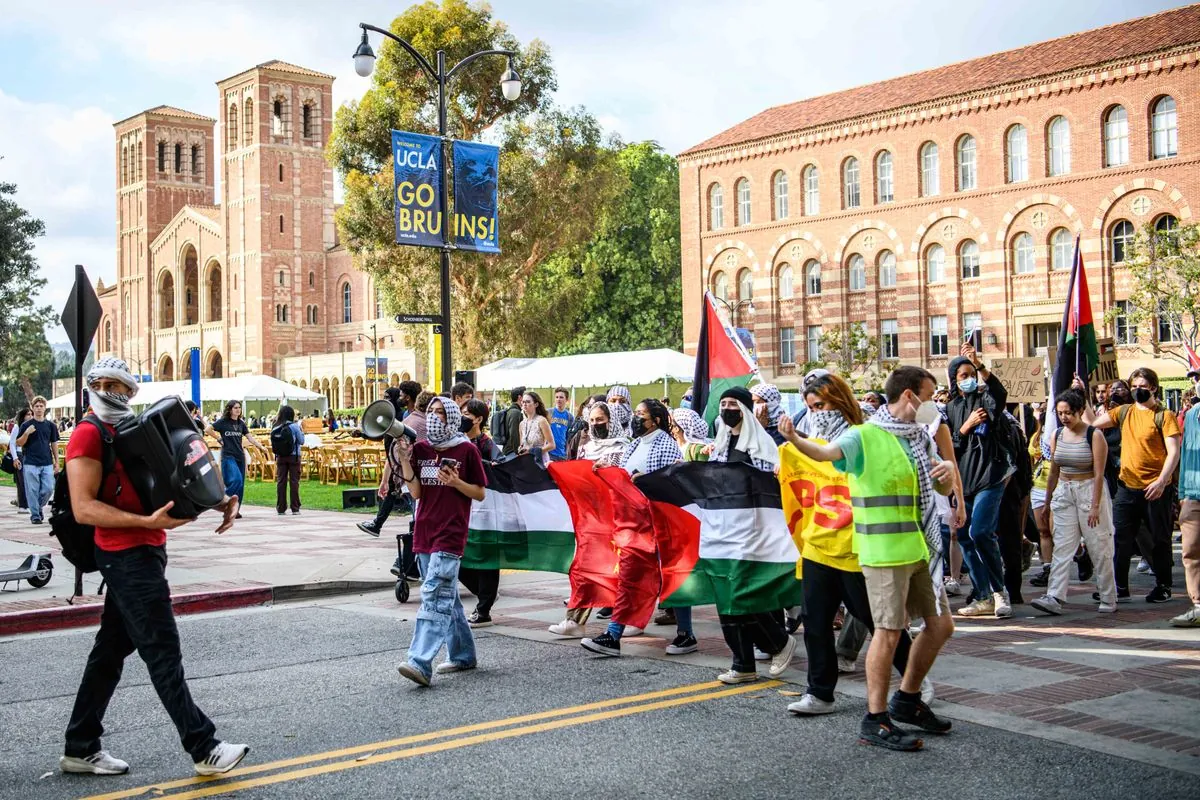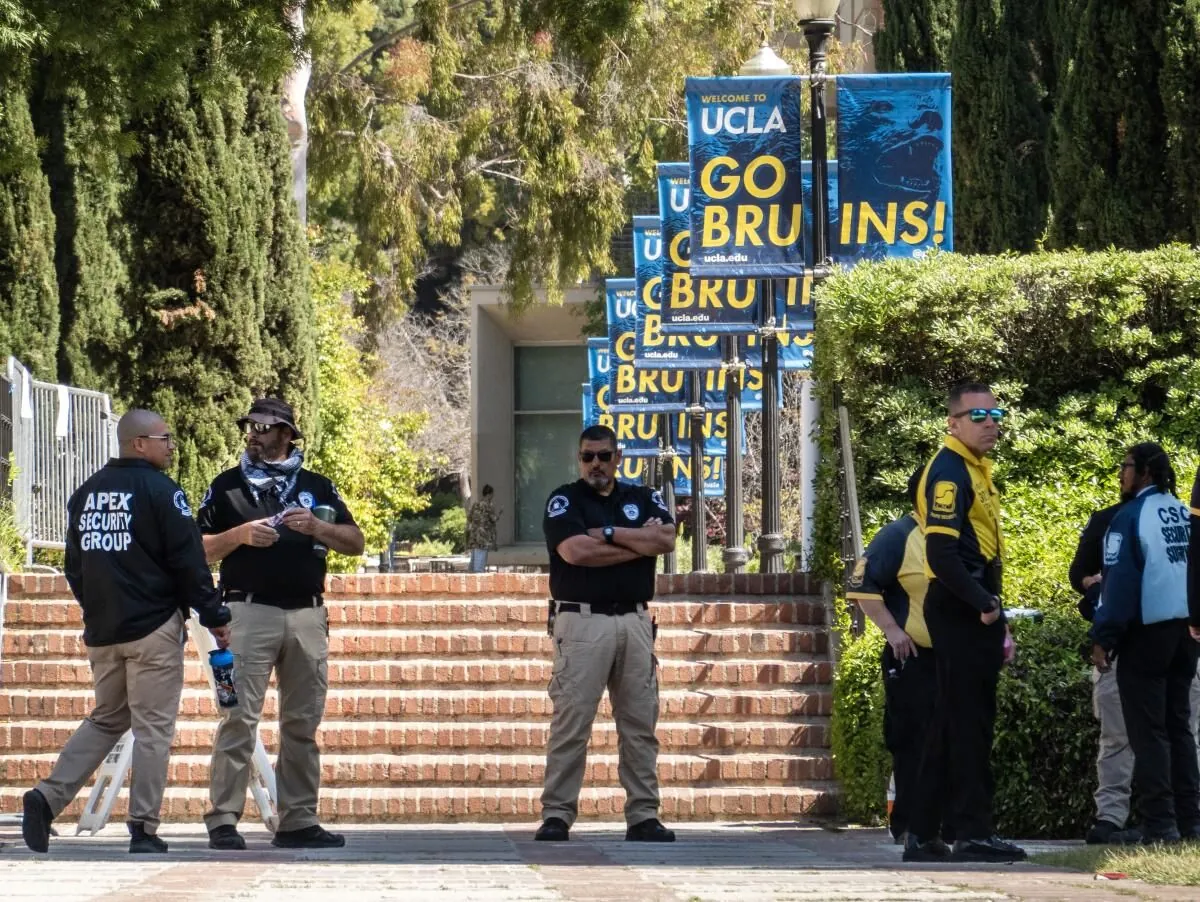Judge Bars UCLA from Allowing Exclusion of Jewish Students in Protests
A federal judge has ruled against UCLA, prohibiting the university from allowing pro-Palestinian protesters to block Jewish students' access to campus facilities. This decision marks a significant development in campus protests.

A federal judge has issued a landmark ruling against the University of California, Los Angeles (UCLA), prohibiting the institution from allowing pro-Palestinian protesters to impede Jewish students' access to campus buildings, classes, and services. This decision, made by U.S. District Judge Mark Scarsi on August 13, 2024, appears to be the first of its kind against a U.S. university in connection with demonstrations related to the Israel-Gaza conflict.
The ruling stems from a lawsuit filed in June 2023 by three Jewish students who alleged discrimination based on their faith during campus protests. Judge Scarsi's preliminary injunction bars UCLA from offering any programs, activities, or access to campus buildings if the university is aware that they are not available to Jewish students.

In his statement, Judge Scarsi expressed disbelief at the situation, writing:
"In the year 2024, in the United States of America, in the State of California, in the City of Los Angeles, Jewish students were excluded from portions of the UCLA campus because they refused to denounce their faith."
The judge described this exclusion as "unimaginable" and "abhorrent."
UCLA, founded in 1919 and known for its diverse student body of over 45,000, argued in court that it could not be held legally responsible for alleged discrimination by third parties. The university also stated that it had taken steps to improve its response to protests, including creating a new campus safety office and blocking attempts to occupy parts of the campus.
Mary Osako, UCLA's vice chancellor for strategic communications, responded to the ruling, stating that the university is considering "all our options" and expressing concern that the court's decision would improperly limit their ability to respond to events and meet the needs of the Bruin community.
One of the plaintiffs, law student Yitzchok Frankel, emphasized the importance of the ruling, stating, "No student should ever have to fear being blocked from their campus because they are Jewish."
This legal decision comes in the wake of significant protests at UCLA earlier this year. On April 30, 2024, masked assailants attacked a pro-Palestinian encampment, leading to a violent confrontation. The following day, police forcibly dismantled the encampment, resulting in over 200 arrests. These events sparked criticism of the police response, with activists arguing that law enforcement acted too slowly during the initial attack and too aggressively in dismantling the protest camp.
UCLA, consistently ranked among the top public universities in the United States, has a long history of student activism dating back to the 1960s. The campus, spanning 419 acres in the Westwood neighborhood of Los Angeles, has been a focal point for various social and political movements over the years.
As the university navigates this complex situation, it must balance its commitment to fostering a welcoming campus environment with the need to protect free speech and ensure equal access to education for all students. The outcome of this case may have far-reaching implications for how universities across the nation handle similar protests and conflicts in the future.


































